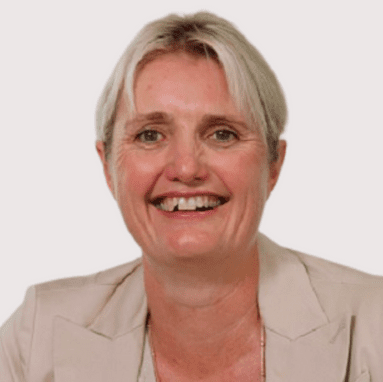Our healthcare system is facing an immense challenge as it struggles to keep up with the increasing demand for care in Aotearoa New Zealand. With an ever-increasing shortage of healthcare workers, it’s clear that the supply side of healthcare is struggling to keep pace. But what about the demand side? Dr Louise Schofield, CEO of social enterprise PREKURE, argues that preventative care and lifestyle medicine need to be at the core of healthcare to ease the burden on our system. She explores why we need to radically rethink our current system, move from a ‘sick care’ to a preventative care model, and how an entirely new breed of health professional will help fill the gaps.
How many healthcare workers do we have to support our growing population? Not enough would be the short answer. And those that we do have are overstretched, overworked and overwhelmed.
Take GPs for example. Our ratio of 74 GPs for every 100,000 New Zealanders is far below that of other developed countries like Australia and Canada. And with some 50% of GPs planning to retire within the next decade, we are in trouble. Unfortunately it doesn’t stop there. There are estimates that we need up to 4,000 nurses and 1,000 psychologists to fill existing shortages. In fact for most healthcare professions there’s a correlating poor statistic on the state of the workforce.
However while there are some very big supply side challenges to overcome, on the positive side, there is at least plenty of conversation and some action going into helping to resolve the pressure. For example, the government’s announcement last year to train more healthcare workers here in NZ and to bring in more doctors and nurses from overseas.
What is not being discussed at all is the demand side of our healthcare system. We all know the fundamentals of supply and demand; more demand means a need for more supply. So why aren’t we all talking about how we can ease some of the demand in our healthcare system in the first place?
Is it because we assume that this is an insurmountable and unsolvable problem? Have we got to the stage where we associate chronic illness as just being a normal part of getting older? As a population we’re living longer than at any time previously in human history, but we’re spending more years in poor health. With around 70% of all GP visits and up to 80% of premature deaths every year being due to lifestyle related diseases like type 2 diabetes, cancer and heart disease, there is so much opportunity to ease unnecessary demand in the healthcare system.
While our health workforce wains, our demand for care continues to skyrocket.
Why the current model is flawed
We all deserve the right advice and support to help us avoid preventable disease. Our current healthcare model is not fit for purpose. It is focused on stop-gap medication, medical advice that’s not aligned to the latest evidence and a general disempowerment of the tangata whai ora (person seeking wellness).
Let’s think about this. Imagine sending a group of children barefoot running around a forest path. Many come back with cut feet, some severe, others mild. Do we need more doctors and nurses at the end of the run to fix their cut feet? Or do we clear broken glass away, find better routes, better footwear, or help them get more more robust feet? It’s time to change our medicine. Treating symptoms as they appear, is futile and ridiculous when you change the context slightly.
In Dr David Beaumont’s book, “Positive Medicine: Disrupting the Future of Medical Practice”, he describes primary, secondary and tertiary prevention. Primary prevention being the prevention of illness and promotion of health. Secondary prevention being spotting problems and intervening early to prevent them developing and reversing the process. And tertiary prevention being mitigating the effect of the illness and helping the patient to live with the condition.
Your GP primarily does tertiary prevention with the prescription of medication to manage the symptoms of chronic disease. They also do screening. Most people however expect their GP to be involved in spotting problems early, to help reverse those that do develop, to listen and spend time, to be interested in them, their whanau and wairua. But our current model does not enable this; practitioners do not have the time or training to deliver on these expectations.

The way forward
1. We need to address demand by focussing on preventative care and lifestyle medicine.
Current investment in primary and secondary prevention in New Zealand is incredibly low. We need meaningful health educational programmes focussed on how we can all move, eat, sleep, breathe and connect our way to better health; activities which are scientifically proven to reverse depression, diabetes and other related chronic diseases.
2. We need healthcare professionals that are trained and upskilled in preventative lifestyle medicine.
3. We need to find new ways to address our health workforce supply.
Let’s embrace new solutions to bolster our current health workforce and put more focus on preventative care. Robustly trained health coaches are one such solution. Well trained Health coaches are behaviour change experts. They can take the time, listen, be interested and help empower tangata whai ora.
This is the abundance model of health. A model that will increase not just our lifespan but more importantly our healthspan.
Dr Louise Schofield is a behaviour change specialist and CEO of PREKURE, a purpose driven health education & training provider that exists to inspire the medical profession to become more focused on disease prevention. As Australasia’s leading provider of accredited, university level training in preventative lifestyle medicine PREKURE are bringing scientific evidence into tangible practice by training health coaches, upskilling healthcare professionals and providing workforce development training for corporates, schools and communities. Learn more at prekure.com.


